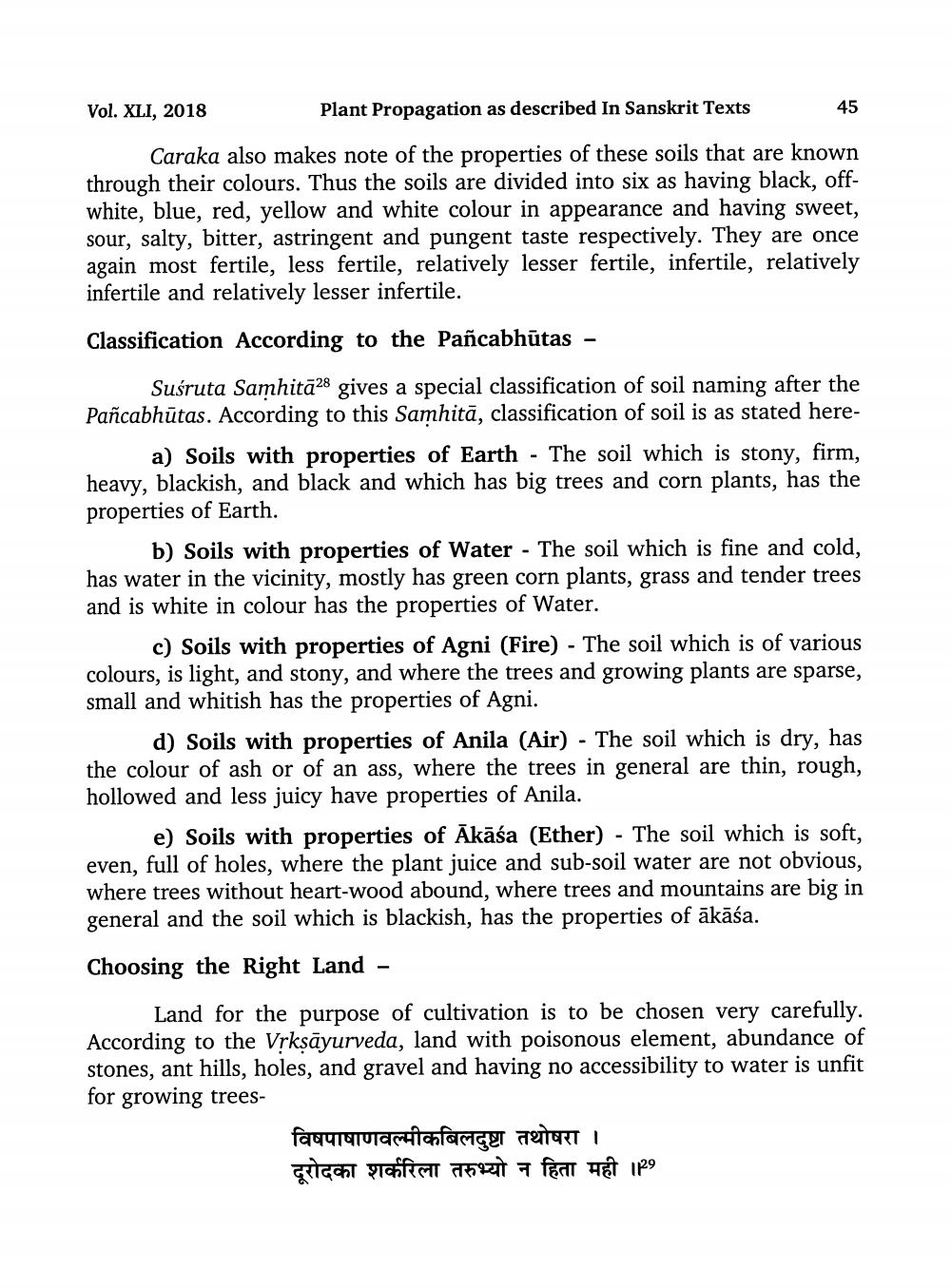________________
Vol. XLI, 2018
Plant Propagation as described In Sanskrit Texts
45
Caraka also makes note of the properties of these soils that are known through their colours. Thus the soils are divided into six as having black, offwhite, blue, red, yellow and white colour in appearance and having sweet, sour, salty, bitter, astringent and pungent taste respectively. They are once again most fertile, less fertile, relatively lesser fertile, infertile, relatively infertile and relatively lesser infertile.
Classification According to the Pancabhūtas -
Suśruta Samhitā28 gives a special classification of soil naming after the Pañcabhūtas. According to this Samhitā, classification of soil is as stated here
a) Soils with properties of Earth - The soil which is stony, firm, heavy, blackish, and black and which has big trees and corn plants, has the properties of Earth.
b) Soils with properties of Water - The soil which is fine and cold, has water in the vicinity, mostly has green corn plants, grass and tender trees and is white in colour has the properties of Water.
c) Soils with properties of Agni (Fire) - The soil which is of various colours, is light, and stony, and where the trees and growing plants are sparse, small and whitish has the properties of Agni.
d) Soils with properties of Anila (Air) - The soil which is dry, has the colour of ash or of an ass, where the trees in general are thin, rough, hollowed and less juicy have properties of Anila.
e) Soils with properties of Ākāśa (Ether) - The soil which is soft, even, full of holes, where the plant juice and sub-soil water are not obvious, where trees without heart-wood abound, where trees and mountains are big in general and the soil which is blackish, has the properties of ākāśa.
Choosing the Right Land –
Land for the purpose of cultivation is to be chosen very carefully. According to the Vrksāyurveda, land with poisonous element, abu stones, ant hills, holes, and gravel and having no accessibility to water is unfit for growing trees
विषपाषाणवल्मीकबिलदुष्टा तथोषरा । दूरोदका शर्करिला तरुभ्यो न हिता मही ॥29




